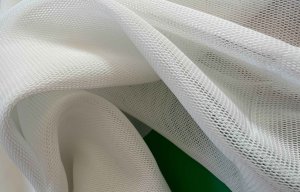
Permanent performance with new Baltex spacer
The company has also announced a successful certification of its Suparcool materials to key industry standards.

29th July 2016
Innovation in Textiles
|
Burneside
The company has launched a new variant and announced a successful certification of materials to key industry standards.
TFP’s new Supacool variant is a lightweight microfine glass spacer tissue co-wound with aluminium foil. The material is the first co-wound Supacool product developed by TFP. It forms the basis of multi-layer insulation (MLI) or super insulation which can be inserted, for example, between the inner and outer walls of a cryogenic vessel.
This new hybrid Supacool variant (58111A) has been developed specifically to offer the key benefit of reduced wrapping time whilst simultaneously improving thermal performance.
Advantages to using the new material are said to include consistent alignment of the spacer tissue with the reflective layers, reduced thermal shorting due to the combination of alternating reflective foil and low conductivity spacer layers in a single product, as well as minimal outgassing in a vacuum due to the absence of adhesive or binder.
The new Supacool material has, along with Supacool M, successfully achieved certification to key industry standards which validate its suitability for production of liquid oxygen vessels, the company reports.
The standards achieved are the Impact Test in Liquid Oxygen according to EN 1797 and the Autogenous Ignition Test with Oxygen according to NF EN ISO 11114–3 standard, demonstrating proven performance in combination with the time saving advantages of a co-wound product.
TFP’s high performance and lightweight Supacool cryogenic tissues aim to provide a highly cost effective option for achieving super insulation.
Supacool is part of a broader range of technically advanced nonwovens which provide solutions for an array of challenging applications across industries ranging from aerospace and defence to automotive, energy, industrial, construction and healthcare.
Typical applications for TFP’s materials include aiding fabrication and delivering a high quality, functional surface finish in composites, as well as providing solutions for fire protection, high temperature thermal insulation and power generation.

Business intelligence for the fibre, textiles and apparel industries: technologies, innovations, markets, investments, trade policy, sourcing, strategy...
Find out more